Secondary Traumatic Stress: Resources for Individual Self Care
- Home
- •
- Topic Areas
- •
- Workforce Support
- •
- Secondary Traumatic Stress: Individual Self Care
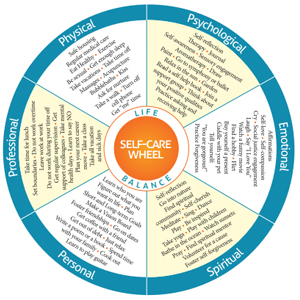
Self-Care Wheel [PDF],
The Self-Care Wheel was inspired by and adapted from “Self-Care Assessment Worksheet” from Transforming the Pain: A Workbook on Vicarious Traumatization. The wheel has includes six different parts: physical, psychological, emotional, spiritual, personal, and professional.
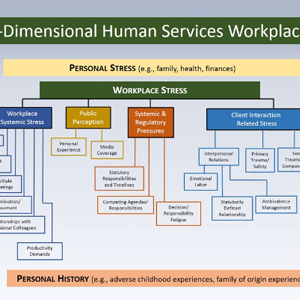
Multidimensional Workplace Stress Micro-Presentation [Video],
Understanding the complex sources of stress—from the workplace, in our personal lives, and from our personal histories—can help us address it effectively. Check out this 7-minute animated presentation to learn more.
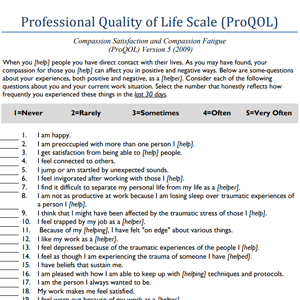
Professional Quality of Life Scale (ProQOL) [PDF],
This worksheet contains questions about your experiences, both positive and negative, about you and your current work situation. Those answering must select the number that honestly reflects how frequently you experienced these things in the last 30 days.
ENGLISH | ENGLISH (SELF-SCORE) | SPANISH
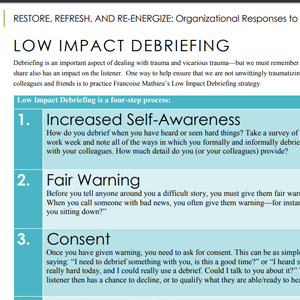
Low-Impact Debriefing [PDF],
Debriefing is an important aspect of dealing with trauma and vicarious trauma—but we must remember that what we share also has an impact on the listener. One way to help ensure that we are not unwittingly traumatizing our colleagues and friends is to practice Francoise Mathieu’s Low Impact Debriefing strategy.
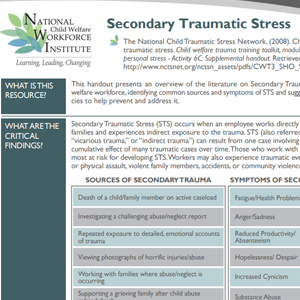
Secondary Traumatic Stress [PDF],
This handout presents an overview of the literature on Secondary Traumatic Stress (STS) in the child welfare workforce, identifying common sources and symptoms of STS and suggestions for workers and agencies to help prevent and address it.

